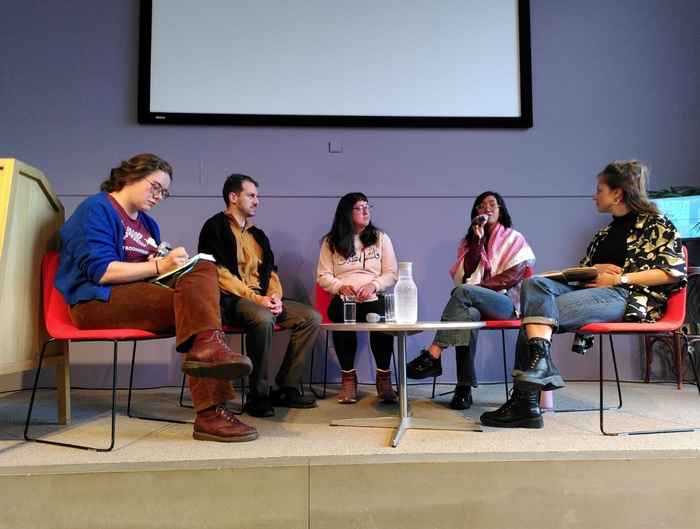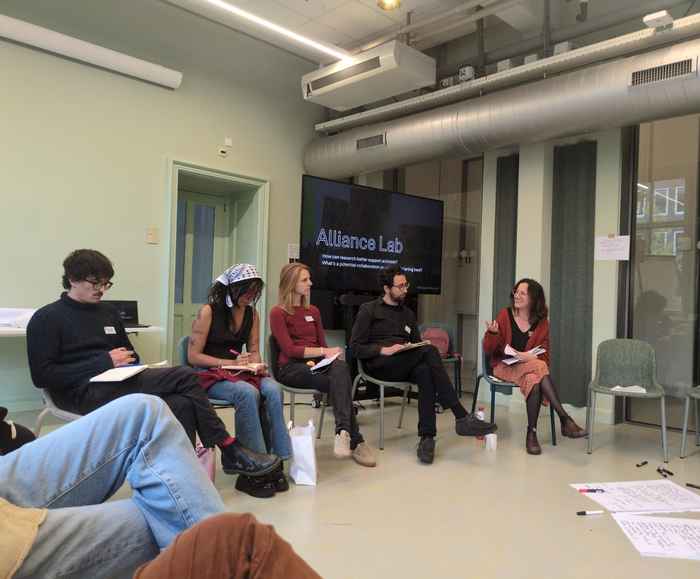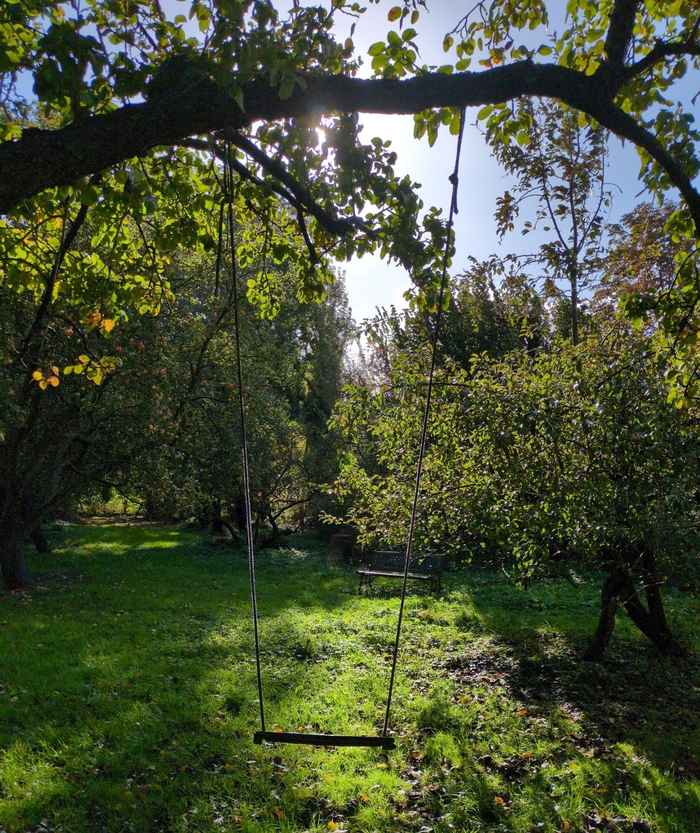Fuelling the fire workshop: How emotions spark and sustain (climate) activism
6 November 2025
AICE researchers Maien Sachisthal, Disa Sauter and Anna Aretha Sach together with Harriët Bergman and Daniel Komáromy conducted a workshop funded by the Center for Sustainable Development Studies. They brought together academics, activists, educators and others who work on the climate crisis.
Below you can read the researchers’ own description of their workshop experience.
Different perspectives on emotions
We started off day 1 with perspectives of emotions and social movements:
Elisabet Rasch talked about her research with frontline communities in South America, and how their own and her emotions have shaped her understanding of the working of social movements. She ended her talk with a wonderful quote of Audre Lorde, highlighting the importance of emotion work: “Caring for myself is not self-indulgence, it is self-preservation, and that is an act of political warfare”
Martijn van Zomeren reminded that emotions are important but not everything in his talk about why people protest. He highlighted the importance of anger in getting people to go out onto the streets, and discussed that hope is complicated. Depending on movement goals, different strategies are of importance - constructive disruption is better for achieving policy change, but if we want to mobilize sympathizers, normative protests are key.
Kristina Bogner lead us on a journey through provocations around the role of emotions, highlighting the importance of sociocultural and political forces influencing of emotions (and vice versa) - she highlighted to trust our emotions, but to not trust how we feel (given that they are shaped by injustices and power dynamics).
Exploring our own emotions and the places of struggles around us
In the afternoon, Harriët Bergman led us through an exploration of our emotions during climate and environmental breakdown - we reflected on different emotions ranging from anger to hope and shame, and explored why we experience some emotions but not others.
We later get to know Amsterdam better in an activist walking tours. We went in small groups guided by a booklet on an environmental justice or social justice tour. This is how we learnt about current and past struggles, like the housing struggle of the Surinamese people in the 70s or West Papua’s fight for independence since the Dutch colonization, and spoke about which emotions they elicit. You can find the materials here to go on a tour yourself: https://edu.nl/gxw38.
The day ended at Spui25 with a public panel in which Mitzi Jonelle Tan, Selçuk Balamir, Chihiro Geuzenbroek, and Anna Sach reflected on how they are feeling, and how their journeys as activists have been shaped by emotions and vice versa. The conversation can be watched back here: https://spui25.nl/programma/fueling-the-fire

Intersection of research and social movements
On day 2, Jutte Dessein, Ewoud Vandepitte, and Tom Rowe took us on a journey of their experiences as emotion researchers and/or activists, reflecting on their experiences surrounding anxiety, despair, hope and anger.
The rest of day 2 was spent on building, and reinforcing potential collaborations - we had an insightful panel on how to work for and with social movements, in which Mitzi Jonelle Tan, Linda Knoester, Fabian Dablander, and Federico Salvini shared their experiences around the intersection of research and activism. The importance of building trust, and answering practical questions were highlighted.

Importance of community, local struggles, and mutual aid
We also went to work ourselves - thinking in smaller groups about what we can learn from movements we do not agree with, how we can strengthen regenerative culture in movements, cards for community and more.
Additionally a few of us went to visit the Voedselpark Amsterdam in the Lutkemeerpolder. There we learnt about the fight to defend the agricultural land against industrial distribution centers, and how they build up alternatives through community supported agriculture.
Throughout the days, different themes came up again and again: The importance of spaces to experience our emotions, the essential role of community, and local struggles, and building mutual aid - especially given the changes in political landscapes we are facing. Other important reflections were around the priviledges that shape our experience of the state of the world and our own and others’ emotional experiences.
Looking back on the two days and the many connections and conversations we had, we am sure more insights and reflections will cristalise. For now, we am incredibly thankful for all the people that joined the workshop for their openness and time. And for the fun and smooth organizing experience – thanks to Harriët Bergman, Daniel Komaromy, and Disa Sauter.
